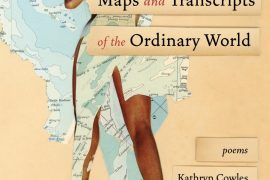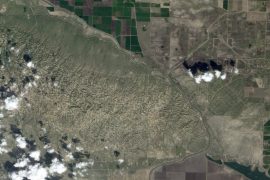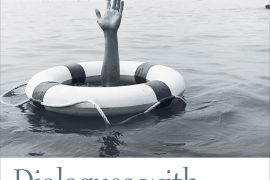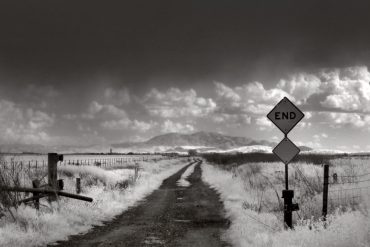In preparation for The EcoTheo Review’s second quarterly I have had the opportunity to talk with a number of people from both the ecological world and the faith world. These voices have been diverse and our conversations have covered what appear to be disparate topics. We have talked about the power of visual art to tell the stories statistics and data can’t, the power of actions over words in the agricultural mission field, the current lack of diversity in the environmental movement and ways this can be changed, the need to take the looming threat of climate change seriously through the lens of rare plant management, the way poetry can invoke epiphany amid the “normalcy” of the world, and the choice to make a seemingly distant place one’s home. Amid these conversations and their wide swath of topics, I was continually struck by the fact that there remains a common goal: care for the earth and the desire to be better caretakers.
Now, this isn’t to dismiss all of our differences or minimize the myriad of intricacies that inform our beliefs and ethics. I would never espouse some superficial syncretism or diminish the complexities that make the world what it is. What I want to lift up is that conversation is possible—that amid disagreement there is still plenty to agree on. Politicians and provocateurs want us to see it another way, that it’s “us” v. “them,” that it’s all or nothing. They push this narrative for one simple reason: it’s easy. It requires no effort or thought to be hostile to the “other”—whoever the other is. But if one is willing to make the effort to meet the other and put in the necessary thought to empathize with another’s situation, one moves from hostility to engagement and, hopefully, hospitality. And it is in engagement and hospitality where real work is accomplished.
For the past few months I have been leading a theology group through Richard Kearney’s book Anatheism. The book introduces a third way beyond militant atheism and dogmatic theism that engages with the religious critiques of the past three centuries while continually returning to the “new” God that awaits on the other side. As Kearney puts it “This third option, this wager of faith beyond faith, I call anatheism, Ana-theos, God after God…In short, another way of returning to a God beyond or beneath the God we thought we possessed” (2011, 3).
One of the main tenets of Kearney’s anatheism is open receptivity to the stranger. The first two sections of the book are spent developing the theology and philosophy behind anatheism. In the third and final section Kearney moves to ethics and praxis. A main point of the final section is that engaging the stranger is a delicate act of translation, a balance between interpreting as much as possible while still being open to the mystery and wonder of the untranslatable.
The ecological movement as a whole must move beyond the false dichotomies of science vs. religion and secular vs. sacred. Yes, these are different categories, but they are not mutually exclusive and none holds an absolute claim to the truth. We need to see that science can tell us the facts, that religion can move us towards transformation, that the secular allows and promotes a diversity of voices while providing critique and preventing any attempts at theocracy, that the sacred allows us to see the stranger as neighbor and the strange earth as home while calling us towards care of both. There will always be disagreement, a variety of views, and differences of opinions, but there can also be engagement, conversation, and, ultimately, a common action. We must move beyond the demagoguery of easy hostility towards the messiness of dialogue and shared action if we wish to salvage this beautiful world.





